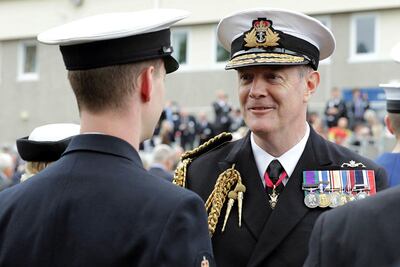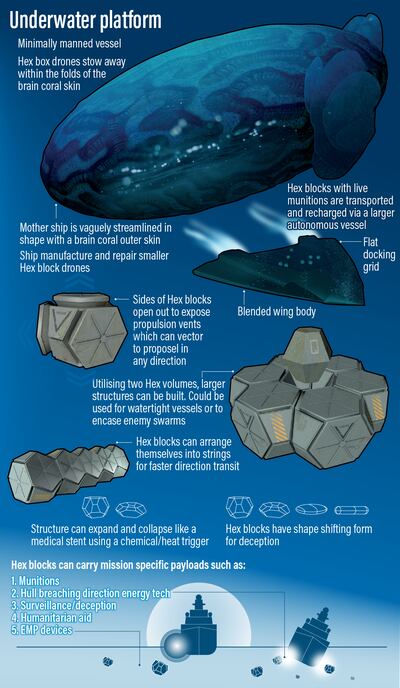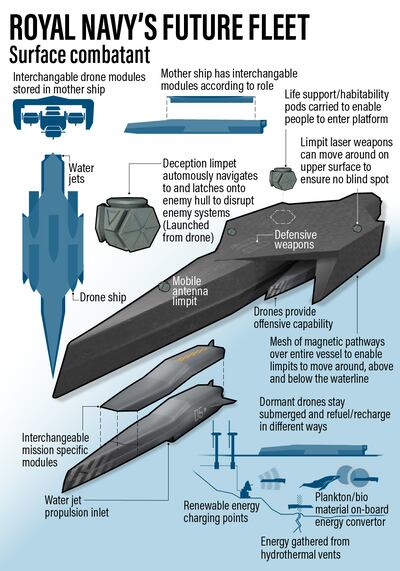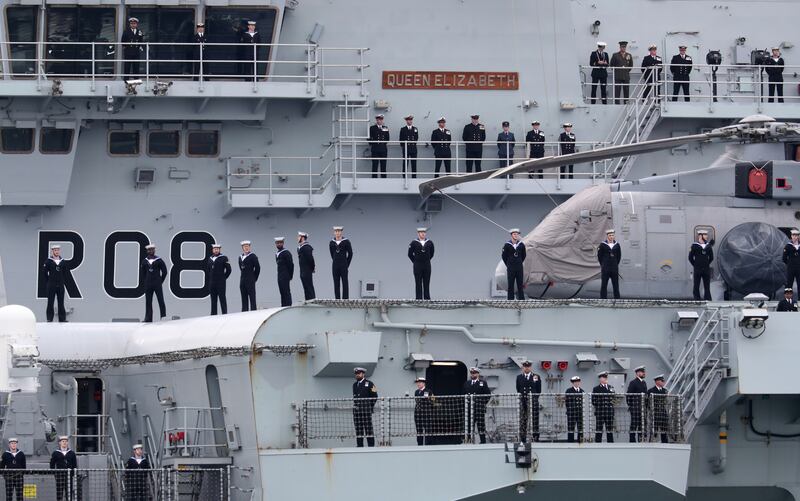The Royal Navy’s second-in-command has launched a stinging attack on the service, saying it had become “comfortable with mediocrity”.
Admiral Sir Nick Hine in a speech to military and defence industry leaders also condemned the navy for failing to urgently modernise, instead “resting on bygone victories”.
He urged the navy to learn from successful modern companies such as SpaceX, Amazon and MercedesF1 as to “what makes them winners”.
The hard-hitting speech comes after Adm Hine earlier this week strongly supported ultra-modern concepts that the force could adopt, such as fast-strike craft launched from huge helium-filled balloons in the stratosphere.
While his comments might concern senior and retired officers, they will be welcomed as the 475-year-old service seeks to modernise to face today's challenges.

“For too long we have maintained the status quo, becoming comfortable with mediocrity and resting on bygone victories and successes,” the Second Sea Lord said. “We point to [Battles of] Trafalgar, Saint Nazaire, the Nile, yet forget that they were enabled by inspirational leadership … diversity, competition and calculated risk taking.”
He said with £24 billion ($33.15 billion) in extra funding over the next four years the navy had an opportunity to modernise but “cannot, overnight, simply remedy the decades of under-investment”, maintaining “bloated systems” and rewriting “misdirected priorities”.
Britain is trying to rapidly catch up with the swiftly revolutionising Chinese navy and advanced Russian developments, particularly underwater, but Adm Hine said that in an institution as old as the Royal Navy “lasting change is incredibly difficult”.
“Even as we drive the organisation forward two steps, we are pulled backward one step by the hand of tradition, organisational ‘sacred cows’, caution and censorship – all, regrettably, part of our culture. We must think differently.”

The service had to get more from its sailors who were “more talented and diverse than ever before”, he told the Defence and Security Equipment International exhibition. “Many have had prior work experiences or untapped skills which we are unaware of, let alone use.”
He said that recruitment has now been opened up to consider personnel on the autistic spectrum
Despite putting a new aircraft carrier to sea with modern strike fighters and advanced submarines underwater, the reality was that the Royal Navy had “scratched the surface of our ambition” and while it was changing “we have not truly transformed”, he said.
It needed to focus its attention on undersea warfare, commando forces and drones if it was to achieve operational advantage over adversaries, he suggested.
Sailors had become too fixed in their roles and were used inefficiently. Thinking had to change, he said. “An anti-submarine frigate can’t become an air defence destroyer – but why not? This is a prime example of us allowing traditional thinking to dictate, cloud and consequentially restrict our ability to be creative or innovative.”

However, Adm Hines did highlight one modern development, detailed by the navy this week, with Pods – persistent operational deployment systems – soon becoming operational. Similar to a shipping container, Pods can be dropped on to warships containing anything from drones, missile systems, lasers, mine hunting and medical aid for humanitarian disasters.
The Pods meant a warship’s capabilities could change in “hours not months”, were interchangeable with allies and upgraded systems rapidly. “The opportunities are endless to gain the operational edge in an era of constant competition,” he said.







